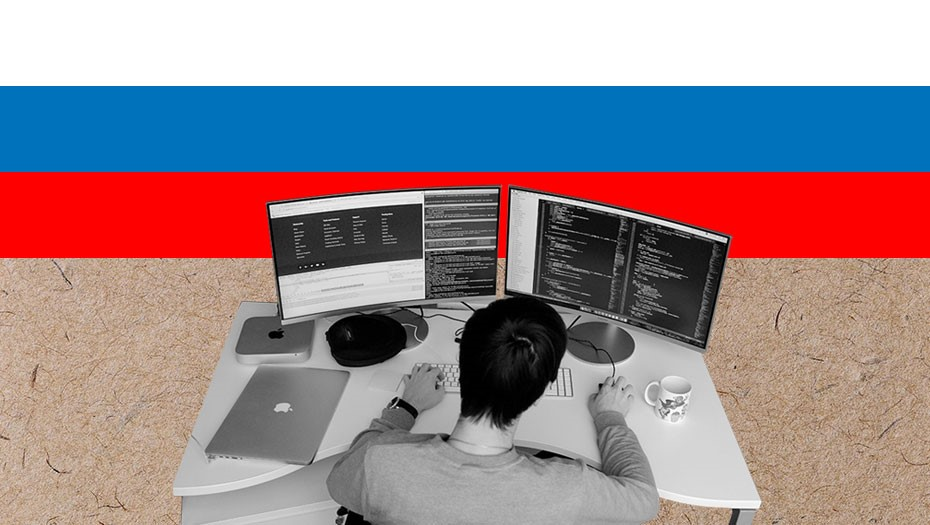IT Services Blocked or Withdrawn from the Russian Market
FacebookFacebook launched an official Tor mirror in 2014, becoming the first major tech company to provide direct access through onion routing. The mirror allows users to bypass censorship, secure their connections, and avoid phishing risks while using the platform. This step also underscored Facebook’s recognition of free expression and inspired other outlets like the BBC and ProPublica to create their own Tor versions. More was the first major American tech giant to be fully blocked in Russia, suffering the most from Russian legislation, with Twitter following soon after. The ban came after Facebook’s parent company, Meta, announced its decision to restrict access to state-run news channels Russia Today (RT) and Sputnik in Europe, which Roskomnadzor cited as “26 cases of discrimination against Russian media.”
“Earlier this week, we announced that we would restrict access to RT and Sputnik across the EU. At the request of the UK government, we have also restricted access to RT and Sputnik in the UK,” a Meta spokesperson said.
YouTube also blocked access to the same channels, as well as to channels belonging to Vladimir Solovyov (a Russian journalist known for his pro-Kremlin rhetoric) and other Russian news outlets such as “Russia 1,” “TNT,” “Zvezda,” “Ren TV,” and others, following a request from Oleksandr Tkachenko, Ukraine’s Minister of Culture and Information Policy. Google also banned Russian state media from monetizing their content.
Ursula von der Leyen, President of the European Commission, stated that they are developing tools to “ban the Kremlin’s media machine in the EU.”
YouTube and Google disabled ads for Russian users (as well as ad revenue) due to a series of pacifist commercials shown to Russian residents, which Roskomnadzor opposed. “Such advertising messages are shown to Russian YouTube users and contain misinformation aimed at distorting the perception of current events among the Russian internet audience and creating protest sentiments,” Roskomnadzor said in a statement.
TikTok, OnlyFans, and Netflix have suspended their operations in Russia, with TikTok expressing concern over a new law prohibiting the spread of misinformation about the Russian military. Creators who violate the law face up to 15 years in prison. ByteDance Ltd, the Chinese company that owns TikTok, stated that while the platform can bring people together during such tragic times, the safety of its users and employees remains a top priority.
However, the consequences for Russian citizens go beyond losing access to favorite platforms. With YouTube potentially facing a ban, many may lose access to alternative news sources. “It will be like going back to the 1980s for those who lived through that era, because suddenly information is once again in the hands of the state,” said Alp Toker, director of NetBlocks.
Similar sentiments were shared by other company leaders facing bans in Russia. Nick Clegg, President of Global Affairs at Meta, suggested that the restrictions would cut millions of Russians off from reliable information, silence them, and deprive them of communication with family and friends.
Tech Corporations and Payment Networks Temporarily Exit the Market
Apple joined the list of companies announcing a suspension of product sales and releases in Russia. Apple also banned RT and Sputnik from its app store outside of Russia.
Visa, Mastercard, and American Express are suspending their operations in Russia, although cards already issued will continue to work within the country. A week earlier, Mastercard had blocked several financial institutions from its payment network.
“Visa is taking immediate action to ensure compliance with applicable sanctions and is prepared to comply with additional sanctions that may be imposed,” Visa representatives said in a statement.
Russian banks advised citizens to switch to co-branded cards from Russia’s “Mir” and China’s UnionPay. Lithuanian company Paysera closed Russian accounts and stopped transactions in rubles. PayPal also ceased providing its services.
Microsoft, Adobe, DXC Technology, Oracle, Forcepoint, Fortinet, Mikrotik, Lenovo, Samsung, Dell, Spotify, HP, and Cisco have either completely stopped deliveries or temporarily shut down operations in Russia. For users of Microsoft, HP, Dell, Lenovo, Fortinet, Oracle, and Cisco, the exit from the market will lead to serious cybersecurity issues, as software updates and patches will no longer be available, and all subscriptions will be blocked. Based on the current situation, updates for the Russian market are unlikely to be released, which will likely fuel software piracy.



